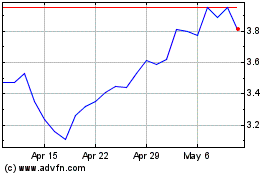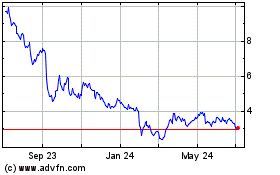Turf War in South Asia Brews as Islamic State Expands, Says IHS
June 19 2015 - 3:30AM
Business Wire
Increasingly violent confrontations between Islamic State and
South Asian Islamist groups expected within next year
Islamist militant groups in South Asia now consider the Islamic
State a threat, according to jihadi media monitoring and analysis
of Urdu and Pashto sites and forums by IHS (NYSE:IHS), the leading
global source of critical information and insight.
“A turf war is brewing between the Islamic State and established
South Asian Islamist militant groups, such as the Taliban,” said
Omar Hamid, head of Asia analysis at IHS Country Risk. “Our
monitoring of jihadi forums in Afghanistan, Pakistan and India
indicate that the Afghan Taliban, the Tehrek-e-Taliban Pakistan
(TTP), Lashkar-e-Tayyiba (LeT) and Jaish-e-Mohammed (JeM) are going
to great lengths to rebut the accomplishments of the Islamic State
and al-Baghdadi.”
Since 2014, the Islamic State has implemented an extremely
successful social media campaign that saw the virtual sidelining of
Al Qaeda and Ayman al-Zawahiri in South Asia. “We have seen Islamic
State’s social media footprint in South Asia gather real momentum,
despite the fact that it is not the region’s preeminent group,”
Hamid said. Islamic State has also benefited in the region from
defections of commanders from the TTP, Afghan Taliban and Kashmiri
militant groups.
In the past few months, there has been increased communication
from these groups regarding the Islamic State. Additionally, the
public document released by the TTP denouncing Islamic State
clearly indicates that the Islamic State is now considered a big
enough threat in the region to merit a public attack.
“Based on our analysis on jihadi media monitoring, we believe
that the TTP’s public 91-page rebuttal of Abu Bakr al-Baghdadi
(also known as Caliph Baghdadi), the leader of the Islamic State in
Iraq and Syria, via social media, reflects the position of the
Afghan Taliban, as well as, most likely, the remnants of core Al
Qaeda,” Hamid said.
“This document represents the first public denunciation of the
Islamic State by more established South Asia-based Islamist
militant groups.”
The now-open animosity of South Asian militant groups to the
Islamic State is likely to lead to increased fighting between
supporters of the groups in the region. In Afghanistan, this will
most likely manifest itself around the peace talks. “The Islamic
State will likely try to disrupt any kind of peace process that the
Taliban and the government are working towards,” Hamid said.
While the capabilities of Islamic State affiliates will probably
remain low, these groups are likely to be more aggressive. As a
result, they could spur on established groups to carry out further
attacks.
About IHS
(www.ihs.com)
IHS (NYSE:IHS) is the leading source of insight, analytics and
expertise in critical areas that shape today’s business landscape.
Businesses and governments in more than 150 countries around the
globe rely on the comprehensive content, expert independent
analysis and flexible delivery methods of IHS to make high-impact
decisions and develop strategies with speed and confidence. IHS has
been in business since 1959 and became a publicly traded company on
the New York Stock Exchange in 2005. Headquartered in Englewood,
Colorado, USA, IHS is committed to sustainable, profitable growth
and employs about 8,800 people in 32 countries around the
world.
IHS is a registered trademark of IHS Inc. All other company and
product names may be trademarks of their respective owners. © 2015
IHS Inc. All rights reserved.
View source
version on businesswire.com: http://www.businesswire.com/news/home/20150619005105/en/
IHS Inc.Amanda Russo, +44 208 276
4727amanda.russo@ihs.comorPress Team, +1
303-305-8021press@ihs.com
IHS (NYSE:IHS)
Historical Stock Chart
From Mar 2024 to Apr 2024

IHS (NYSE:IHS)
Historical Stock Chart
From Apr 2023 to Apr 2024
